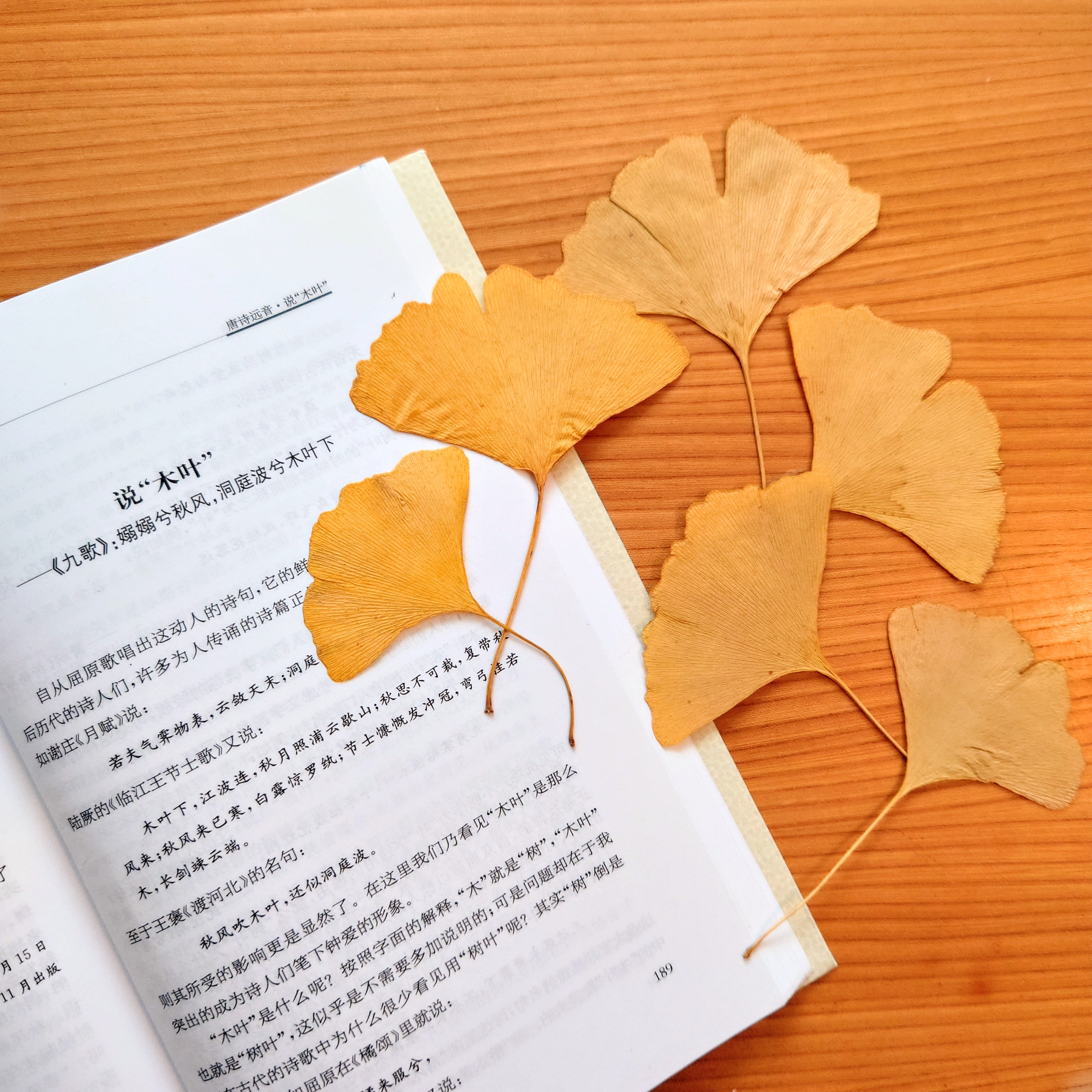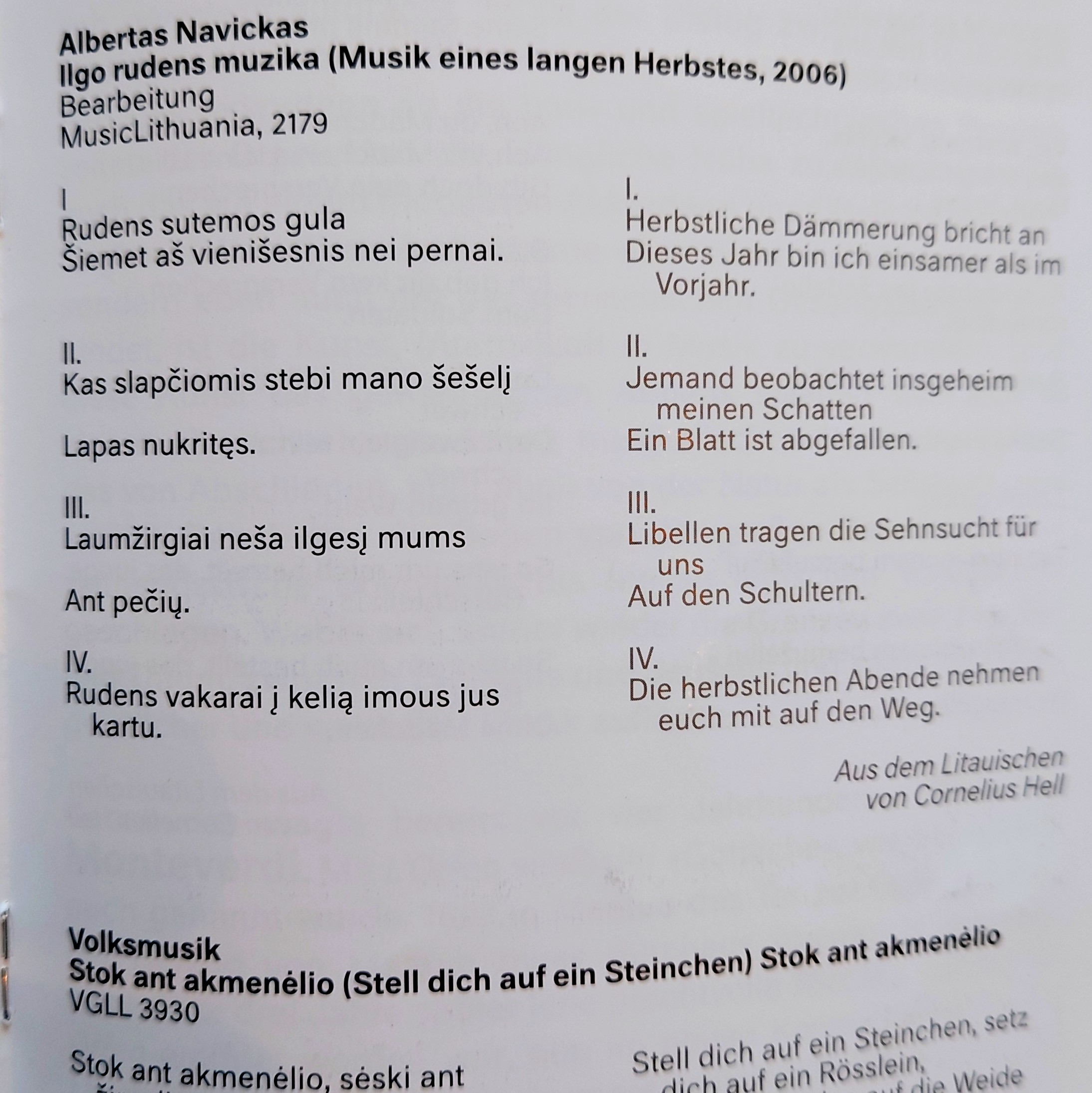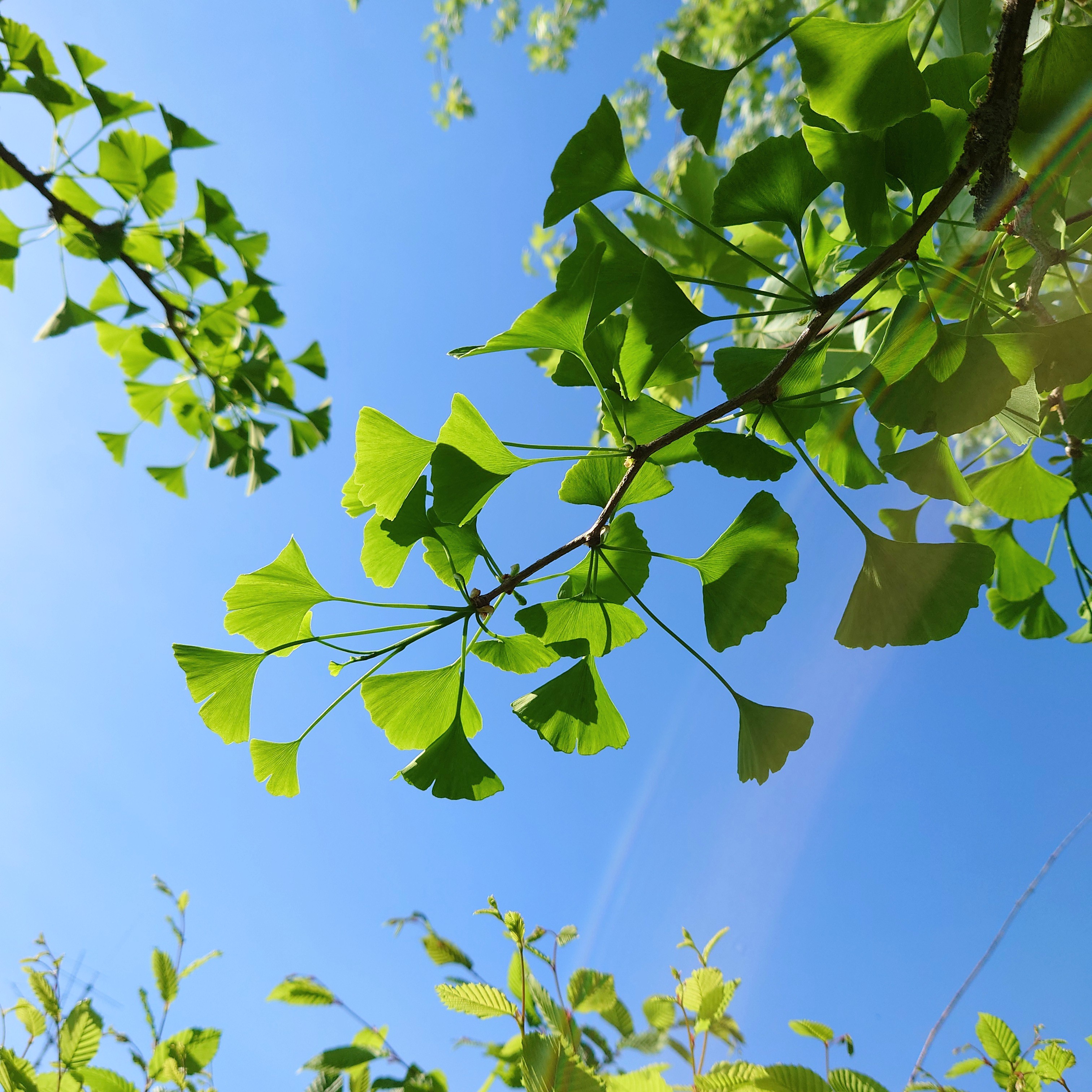
In this essay “Shuo Mu Ye” , 林庚 Lin Geng(1910 – 2006)examines the names of the leaf in Chinese classical poetry. “Mu” 木 and “Ye”叶 both mean leaf, but in the poetic realm, the subtle differences between the two are individually and exclusively termed. The earliest works for which the distinction between the two can be traced is “Nine Songs” by Qu Yuan (c. 340 BC – 278 BC).
Since Qu Yuan created the term to distinct “Mu” from “Ye” , the poets who came after him were fond of these two words, especially “Mu”. One of the most famous poems that use “Mu” is written by Du Fu (712-770).
《登高》
风急天高猿啸哀,渚清沙白鸟飞回。
无边落木萧萧下,不尽长江滚滚来。
万里悲秋常作客,百年多病独登台。
艰难苦恨繁霜鬓,潦倒新停浊酒杯。
What is the charm of the word “Mu”? “Mu” is a special leaf in Autumn. Not that kind of vigorous golden red leaves in Autumn but a coloured, dried leaf. A leaf that cannot withstand the wind and is ready to fall off at any time.
And I found this leaf that called “Mu” in a song composed by Franz Schubert, lyric by Wilhelm Müller – Last Hope.


I also encountered “Mu” in a concert, in a Lithuanian song.
The autumn dawn is breaking
This year I am lonelier than last year
Someone is secretly watching my shadow
A leaf has fallen
Dragonflies carry the longing for us
On their shoulders
The autumn evenings take you on the way
Albertas Navickas * 1986 Ilgo rudens muzika (Music of a long autumn)


Nowadays, in Modern Chinese Language, “Ye” is still leaf, but “Mu” means wood. “Mu” as a coloured, dried, autumn leaf only living in the kingdom of Chinese Classical Poetry. Have you ever encountered “Mu”? Tell me about the encounter.

